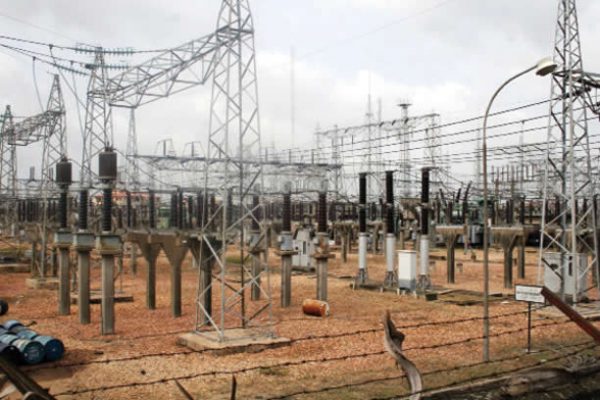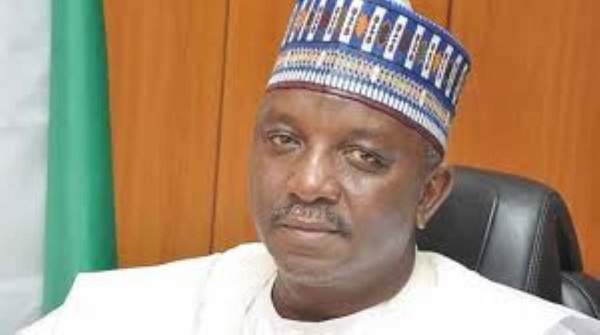FG loses N395.4b power revenue, records N3.644tr fiscal deficit
 Power generation by the nation’s electricity companies hit an average of 3,862MW between January and August, from a monthly average of 3,531MW in the previous months, the latest data from the office of Vice President Yemi Osinbajo have shown.
Power generation by the nation’s electricity companies hit an average of 3,862MW between January and August, from a monthly average of 3,531MW in the previous months, the latest data from the office of Vice President Yemi Osinbajo have shown.
However, the power generation has remained low and insufficient to meet the nation’s energy demand. Besides, the constrained revenue between January and August rose to N395.43 billion, as the national electricity transmission system, also known as the power grid, suffered a major collapse last Friday, plunging the country into a blackout.
Specifically, the data revealed that the nation in January lost N41.37billion; February, N44.38billion; March, N49.35billion; April, N49.14billion; May, N45.25billion; June, N50.30billion; July, N57.62billion; and in August, N58.01billion.
The collapse of the national grid, last Friday, which was the ninth time between January and August 2019, was confirmed on Twitter by the distribution companies (Discos) whose coverage areas were rocked by the blackout.
The Transmission Company of Nigeria (TCN) explained that the system collapsed due to high voltage caused by a massive drop of load by the electricity distribution companies.
This means Nigerians have continued to depend on alternative sources of energy to power their households despite government’s reforms, thus, limiting consumers’ disposable income that should have been used for other purposes, and also increasing environmental pollution.
According to the Manufacturers Association of Nigeria (MAN), the operating environment remains challenging and depresses productivity in the sector.
Specifically, the operators cited poor electricity supply, non-reliability of gas supply, scarcity of diesel and high cost of LPG as the major production impediments in the country.
The data indicated that within the period under review, the privatised power sector lost the N395.43 billion revenue due to constraints which include shortage of gas, grid unreliability and distribution limitations.
The inability of the Federal Government to block the leakages rampant in its revenue-generating agencies continued in 2018, leading to a financing gap of N3.644 trillion in its 2018 budget, the implementation of which ended sometime in June this year.
According to the documents from the VP’s office, the deficit represented 2.85 per cent of the country’s GDP in 2018.
The re-appointed Finance Minister, Mrs. Zainab Shamsuna Ahmed, recently disclosed that the country recorded about 51 per cent revenue shortfall but said that the situation would change in the next four years when she hoped that the target would be raised below-average performance to somewhere around 85 per cent.
But the 2018 consolidated Federal Government budget implementation report by the Budget Office of the Federation indicates that so much fiscal control is still required for the attainment of such a lofty target as the deficit for the year was 86 per cent, higher than the projection in the budget for the year under review, though it was found to have marginally moderated when compared with the level of the 2017 gap.
“The revenue and expenditure outturn of the Federal Government resulted in a fiscal deficit of ₦3,644.70 billion in the year (2.85 percent of the 2018 GDP) and ₦892.40 billion in the fourth quarter of 2018. The annual deficit was ₦1,690.23 billion or 86.48 percent higher than the projected fiscal deficit of ₦1,954.47 billion for the period. It was, however, lower than the fiscal deficit of ₦3,805.94 billion reported in 2017.
The deficit was financed to the tune of ₦1,742.09 billion through foreign borrowing of ₦1,073.30 billion and domestic borrowing of ₦668.79 billion. This resulted in a ₦1,902.61 billion net deficit financing for the review period,” the report explained.
It would be recalled that a total of ₦9,120.34 billion was appropriated for expenditure in the 2018 budget.
Of that amount, the Director-General of the Budget Office of the Federation, Mr. Ben Akabueze, disclosed that ₦3,516.48 billion (38.56 percent) was gulped up by recurrent (Non-Debt) expenditure; ₦2,203.84 billion (24.16 percent) was for debt services; ₦530.42 billion (5.82 percent) was for statutory transfers and ₦2,869.60 billion (31.46 percent) was for capital expenditure.







